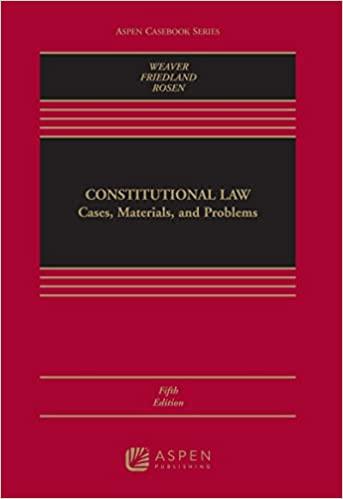Answered step by step
Verified Expert Solution
Question
1 Approved Answer
Howard Turner borrowed $85,000 from Fidelity Mortgage (Fidelity) and executed a mortgage to secure the loan. Turner died six months later, and the note went
- Howard Turner borrowed $85,000 from Fidelity Mortgage (Fidelity) and executed a mortgage to secure the loan. Turner died six months later, and the note went into default. HSBC Bank USA, N.A. (HSBC) sued Jamie Thompson, the daughter and administratrix of Turner's estate. HSBC produced copies of the note and mortgage and two separate, loose documents each titled "allonge." The rst stated, "Pay to the order of ____" and was signed on behalf of Delta Funding Corp. The second stated, "Pay to the order of Delta Funding Corp." and was signed on behalf of Fidelity. Were the alleged allonges adequate to negotiate the note to Delta?
- Daniel Manley executed a note for $420,000 secured by a mortgage to Independent National Bank (Independent). Manley's father, Thomas Manley, guaranteed payment of the note. Wachovia Small Business Capital (Wachovia) obtained the note as a result of a merager with Independent. There was default on the note. At trial, Thomas testied that he had taken $375,000 in $100 bills to Wachovia and requested a receipt. He said the Wachovia employee had told him a receipt would be mailed to him after the amount was veried, but he never received one. Three months later, Daniel received the original note in the mail in a Wachovia envelope. The note was stamped "Paid" Wachovia had no record of a $375,000 cash payment or of the normal audit procedures if followed when a note was paid. The Manleys argued that Wachovia's stamping "Paid" on the note and mailing it to Daniel discharged the note. Was it discharged?
- Chester Crow signed a note for a loan from First National Bank (FNB). The note was due in ninety days, but Crow could not pay the full amount when due. Several years later, Premier Bank, the successor to FNB, returned three payments to Crow with a cover letter that called the payments "overpayments." It then issued an IRS Form 1099-C (Cancellation of Debt) to Crow, with these notations: "Date canceled: . . . ; Amount of debt canceled: $7,991.00." The 1099-C resulted in a negative tax impact for Crow. At the same time, Premier sold the note and three dozen others having a total face value of $600,000 and indorsed: "without recourse, representation or warranty of any kind" to Credit Recoveries Inc. (CRI) for $1,500. Four months later, CRI demanded that Crow pay his note. Crow wrote CRI that Premier had "returned a refund check for the last payment." Four years later, after no contact, CRI again demanded that Crow pay the note. Crow replied that Premier had issued the 1099-C. CRI sued Crow. Had Premier cancelled the debt?
Stuck on these three cases problem. Any help would be much appreciated!
Step by Step Solution
There are 3 Steps involved in it
Step: 1

Get Instant Access to Expert-Tailored Solutions
See step-by-step solutions with expert insights and AI powered tools for academic success
Step: 2

Step: 3

Ace Your Homework with AI
Get the answers you need in no time with our AI-driven, step-by-step assistance
Get Started


